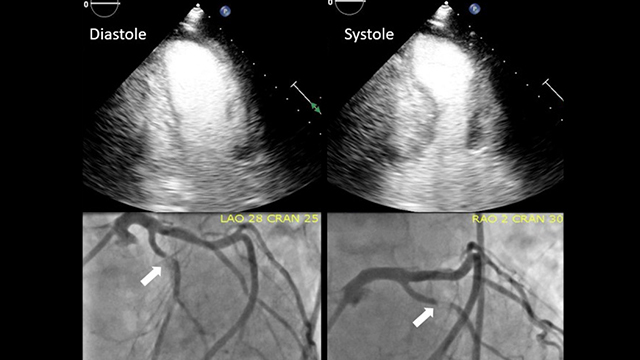Systemic Inflammatory Disease and Early Heart Attack: Study Finds Enhanced Mortality Risk
July 8, 2022 - Eden McCleskeyA heart attack before age 50 is something no one expects or wants, but researchers are discovering it's even more dangerous for some than for others.
People who have autoimmune systemic inflammatory diseases such as psoriasis, rheumatoid arthritis or systemic lupus erythematosus are particularly vulnerable to negative outcomes following early myocardial infarction (MI), according to a recent Mass General Brigham Young-MI Registry study.
Houston Methodist also participated in the research.
Analyzing the records of more than 2,000 adults who suffered an MI before 50, the researchers found that the 2.5% of patients who had a systemic inflammatory disease (SID) were nearly twice as likely to die in the decade following the heart attack than the 97.5% without SID. They were about 140% more likely to die than study participants without SID but similar in fundamental demographic characteristics.
Over a median follow-up period of 11.2 years, the all-cause mortality rate for patients with SID was 20.8% compared with 11.9% for the full cohort of non-SID patients and 8.7% for a matched cohort of 158 patients (early MI, no SID, similar age, gender and CV risk profiles to SID group).
"What this tells us is that typical risk factors, such as obesity, diabetes, hyperlipidemia, etc., cannot fully account for the elevated cardiovascular mortality rate of patients with systemic inflammatory disease," says Dr. Khurram Nasir, chief of Cardiovascular Prevention and Wellness at Houston Methodist and a study co-author. "This suggests the chronic inflammation associated with these autoimmune disorders — the typical onset of which is during one's early 20s — may be a key driver in a patient's elevated mortality risk."
The study also found that patients in the SID group were significantly more likely to be female and have high blood pressure than those in the non-SID cohorts. They also were significantly less likely to be prescribed guideline-directed aspirin or statin therapy upon discharge.
Previous research from this group found that women who experienced early MI had a 50% increase in all-cause mortality compared to men. They also were significantly less likely than their male counterparts to undergo invasive heart procedures such as coronary revascularization or receive guideline-directed aspirin, ACE or statin therapies upon discharge.
Dr. Nasir is a leading expert in the study of early cardiovascular risk, cardiac imaging and prevention, with over 500 peer-reviewed articles published so far. Houston Methodist is a hub for preventive cardiology treatment and research, with approximately 40 peer-reviewed studies originating from the department annually.


